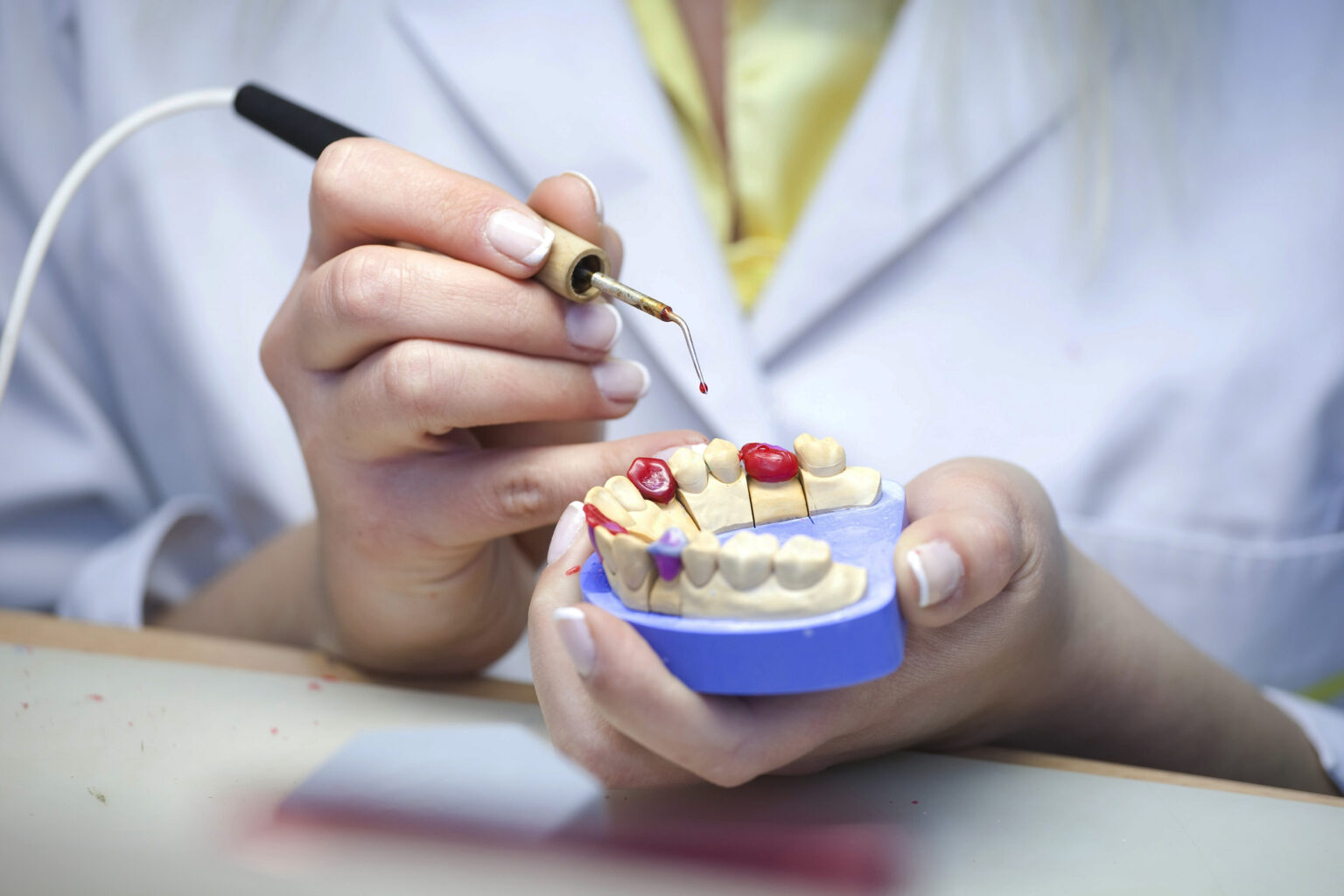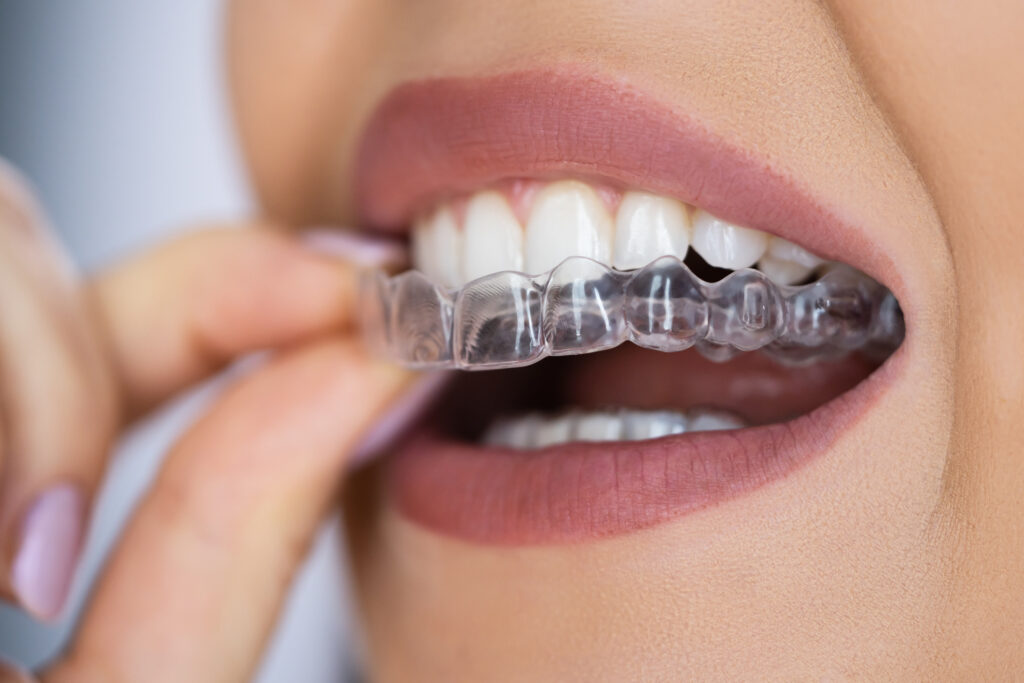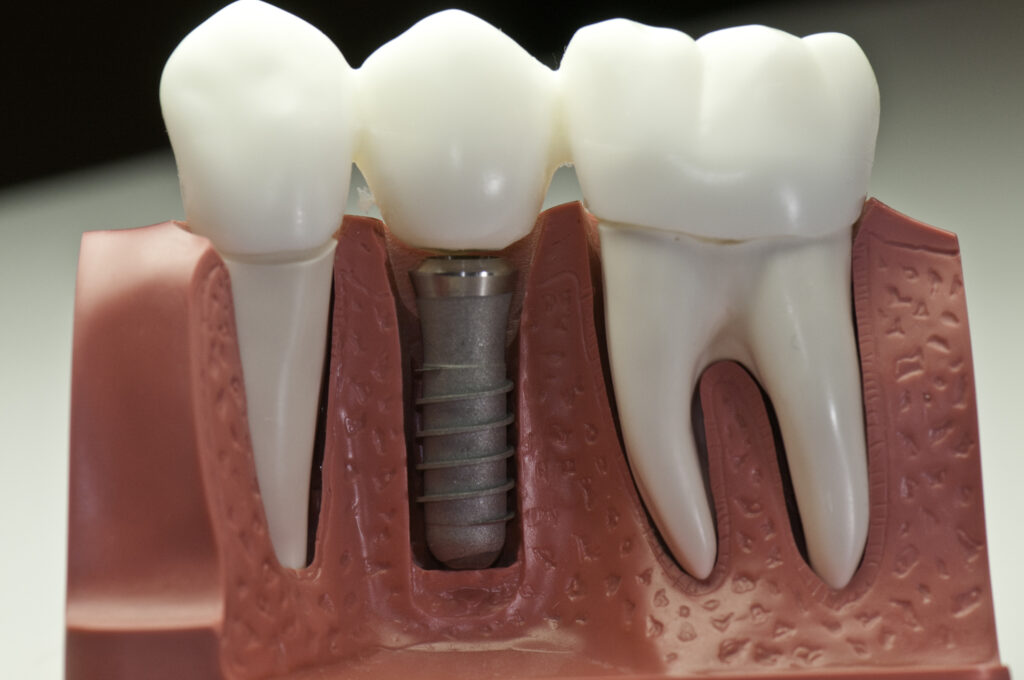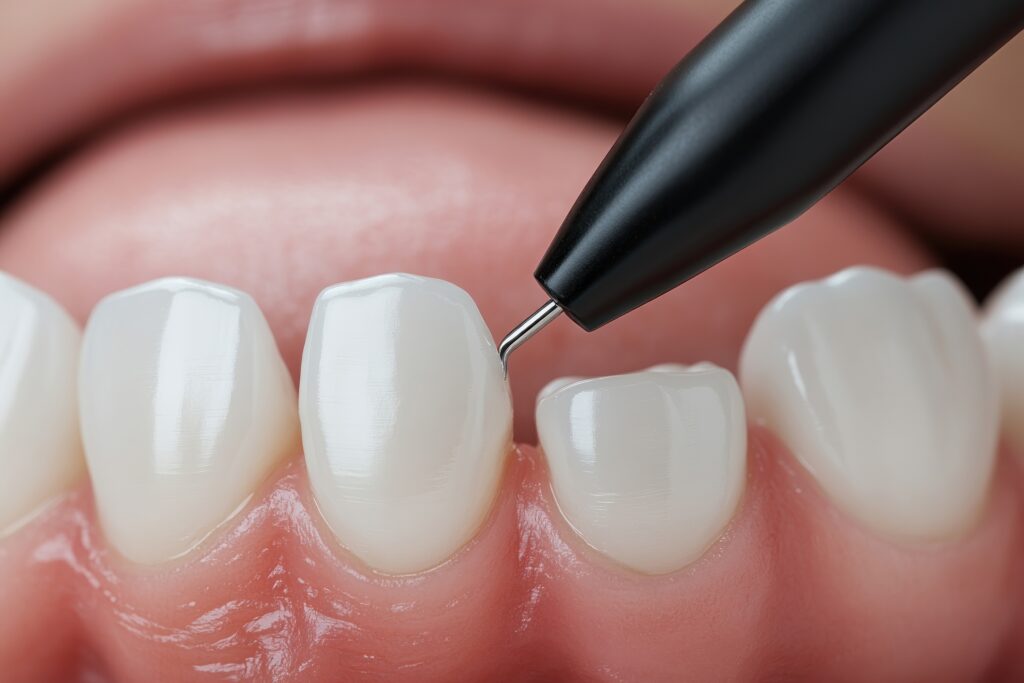Do you find missing teeth or denture discomfort a constant challenge?
Dental implants have transformed contemporary dental practices by delivering a permanent option that replicates the appearance and functionality of natural teeth. Any major dental treatment requires thorough consideration before proceeding.
This guide will lead you through all aspects of dental implants in Australia, starting from their actual costs to analysing their long-term advantages.
The best part?
When you finish this article, you will possess enough information to determine whether dental implants are suitable for you.
What you’ll discover today:
- What Are Dental Implants and How Do They Work?
- The Real Costs of Dental Implants in Australia.
- Benefits of Dental Implants vs Other Tooth Replacement Options.
- Who Is a Good Candidate for Dental Implants?
- Recovery and Aftercare Tips.
What Are Dental Implants and How Do They Work?
Dental implants consist of titanium posts surgically inserted beneath your gums into your jawbone, which function as replacement roots for missing teeth. After installation, your dentist uses them as a base to attach prosthetic teeth.
How exactly do they work?
The implant operates as an artificial root for teeth while being constructed from materials compatible with the human body (typically titanium), which prevents bodily rejection. The implant integrates with your jawbone through osseointegration, which provides a strong base for your replacement teeth.
A dental implant consists of three key parts:
- A titanium post, which gets inserted into the jawbone, acts as the implant.
- The abutment functions as the attachment point for the implant’s upper section.
- The crown appears as a normal tooth because it is the visible portion of the dental implant.
Dental implants achieve exceptional stability and durability because they fuse directly with your natural jawbone. Implants maintain their own support without depending on neighbouring teeth like bridges or risking slippage like dentures.
The Real Costs of Dental Implants in Australia
We need to discuss finances because dental implants represent a major financial commitment.
The price for one dental implant in Australia normally falls between $3,000 and $6,500. The price of a dental implant generally covers the implant device along with the abutment and crown components. The expense of dental implants differs greatly because of multiple influencing elements.
- Your location within Australia.
- The complexity of your case.
- Additional procedures such as bone grafting may be necessary for your case.
- The materials used for your crown.
The financial cost increases for individuals who need several implants. However, full-mouth restoration options like All-on-4 dental implants can actually be more cost-effective than individual implants for every missing tooth. If you’re considering this option, click here to learn more about how All-on-4 implants work and their specific costs.
Numerous individuals question the’ higher costs of dental implants compared to alternative dental treatments. The high cost of dental implants stems from their high-quality materials combined with their surgical procedure requirements and the specialised training implant dentists need to perform them.
Market research forecasts that the Australian dental implants market will expand at a CAGR rate of 4.18% throughout the period of 2025 to 2033, which indicates that dental implants treatment is gaining widespread popularity and acceptance.
Benefits of Dental Implants vs Other Tooth Replacement Options
What benefits make dental implants a viable option, even with their expensive pricing?
Dental implants offer significant advantages compared to traditional tooth replacement methods such as dentures or bridges. A tooth replacement plan in Charleston can help you compare longevity and upkeep before you choose which route fits your needs.
- Dental implants may remain functional throughout a patient’s lifetime when maintained properly, but dentures and bridges usually require replacement within a period of 5 to 10 years.
- Implants prevent jawbone loss because they stimulate the bone in a way that is similar to natural tooth roots.
- Modern dental implants closely resemble natural teeth, which helps you maintain a confident smile.
- Implants maintain their position without sliding or making noise during speech or meals, unlike dentures.
In 2022, Australians received 108,399 dental implant and abutment surgeries, which reflected their increasing preference for implants as a tooth replacement solution.
Think about the long-term value: The upfront cost of dental implants may surpass other options, but their lifetime expense can turn out less over time because those alternatives require continuous replacement and adjustments.
Who Is a Good Candidate for Dental Implants?
Are dental implants right for you?
Adults who maintain good health, both generally and specifically in their oral care, qualify to receive dental implants. However, certain factors can affect your suitability:
- The jawbone must provide adequate support for a successful dental implant. Bone grafting becomes a viable solution when bone loss happens.
- Before placing implants, treatment for gum disease is necessary.
- Some health conditions, such as uncontrolled diabetes and heart disease can impede proper healing.
- Smoking leads to a higher probability of dental implant failure.
Your overall health status plays a more crucial role than your age when determining dental implant suitability. The jawbone should finish growing before teenagers get dental implants, but there isn’t a maximum age restriction.
The dental implants market features titanium as its predominant material segment because of its extensive application, attributable to its strength and compatibility with biological tissues.
Recovery and Aftercare Tips
What should you anticipate following the completion of your dental implant surgery?
After implant placement, it’s normal to experience:
- Some swelling of your gums and face.
- Bruising of your skin and gums.
- Minor bleeding.
- Pain at the implant site.
The symptoms usually remain mild and respond well to treatment with over-the-counter pain medications. Your dentist might give you antibiotics to prevent infection after implant surgery.
During the healing period, you’ll need to:
- Eat soft foods for the first week.
- Avoid smoking and alcohol.
- Maintain good oral hygiene and be careful when cleaning around your surgical site.
- Attend all follow-up appointments.
After your dental implant heals completely and the final restoration is installed, you can easily maintain your implant. To maintain your dental implant, you should brush twice a day and floss once a day around the implant site, as well as use antibacterial mouthwash while ensuring regular dental check-ups.
Dental implants can last throughout your lifetime if you maintain proper care.
All-on-4: A Revolutionary Approach
People who have lost most or all of their teeth can find a modern solution through All-on-4 dental implants.
Full-arch restoration typically needs between eight and ten implants for each jaw. The All-on-4 technique achieves full arch support using four carefully positioned implants.
The benefits of this approach include:
- The procedure requires only four implants in each jaw area instead of the usual 8 to 10.
- Patients can save money with All-on-4 dental implants as they are less expensive than getting implants for each missing tooth individually.
- The treatment process using All-on-4 implants typically concludes in one day, which some refer to as “teeth in a day.”
- This technique prevents bone grafting procedures from becoming necessary.
The All-on-4 dental implant procedure has significantly enhanced the lives of numerous patients who found traditional dentures inadequate.
Finishing Thoughts
The development of dental implants stands as one of dentistry’s most critical breakthroughs over the past few decades. The long-term advantages to oral health and overall quality of life justify the initial time and money needed for dental implants.
Dental implant systems now allow you to find solutions for either a single tooth or an entire arch according to your personal requirements and financial plan.
The key takeaways to remember:
- Dental implants offer a permanent and natural-looking replacement for missing teeth.
- Although the initial expense for dental implants is high, they provide greater value over time compared to other dental solutions.
- The majority of healthy adults can receive dental implants successfully.
- Proper maintenance ensures dental implants function throughout a person’s life.
Are dental implants the correct choice for your dental needs? You should schedule a consultation with a skilled implant dentist who will evaluate your unique situation to offer tailored advice.
The investment in dental implants creates benefits beyond just fixing your smile by also bringing back your self-assurance and overall life satisfaction.
Disclaimer
The information provided in this article, “Understanding the Cost and Benefits of Dental Implants”, is intended for general educational purposes only and does not constitute professional medical or dental advice, diagnosis, or treatment. While every effort has been made to ensure the accuracy and reliability of the information at the time of publication, Open Medscience makes no representations or warranties regarding the completeness, accuracy, or timeliness of the content.
Dental implant procedures and associated costs may vary based on individual needs, medical conditions, practitioner expertise, and location. Readers are strongly advised to consult with a qualified dental professional before making any decisions related to their oral health or pursuing any form of treatment mentioned in this article.
Open Medscience shall not be held liable for any direct or indirect consequences resulting from the use of information contained in this guide. Inclusion of market data or treatment trends is for informational purposes and does not imply endorsement of specific procedures, products, or providers.
home » blog » dentistry »



